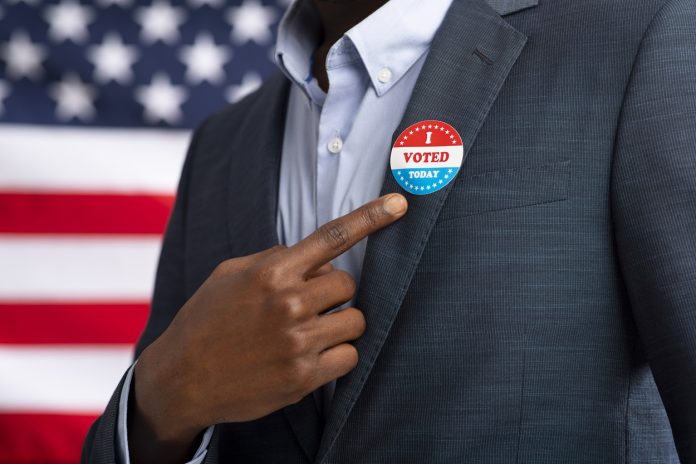
The 2024 presidential election is shaping up to be a pivotal moment in American history, with critical issues at stake and a highly engaged electorate for both red and blue. Understanding the key dates, voter registration processes and the implications of party affiliation are essential for participating effectively in this democratic process. And let’s face it — voting can be confusing, so we’ve outlined some crucial information you need to make sure your vote counts.
Voter Registration
General Resources for Voter Registration:
- Online Registration: Many states offer online voter registration, which is often the easiest way to sign up. Visit your state’s election office website or a national resource like Vote.org to get started.
- In-Person Registration: If you are not already registered to vote, you can register in person at your local election office which can be found at usa.gov, Department of Motor Vehicles (DMV) or other designated locations.
- Mail Registration: Obtain a voter registration form from your state’s election office website, fill it out and mail it back.
Key Registration Deadlines:
Deadlines to register to vote vary by state, so make sure you check your local laws. Florida residents must be registered at least 29 days before the election. The deadline has passed to register or change your party affiliation for the 2024 Primary Election, but the deadline to register for the 2024 General Election is October 7, 2024.
Primary Elections and General Voting
Primaries are held at different times depending on the state. The primary season typically runs anytime from March to August, but the exact dates for your area can be found on your state’s election office website. The general election is always held on the first Tuesday in November.
Here are the Primary and General election dates to be aware of from the Florida Division of Elections:
Primary Election Dates for Florida:
- Deadline to send vote-by-mail ballots to UOCAVA voters: July 6, 2024
- Deadline to send vote-by-mail ballots to domestic voters: July 11 – 18, 2024
- Deadline to register to vote or change party affiliation: July 22, 2024
- Deadline to request that ballot be mailed: August 8, 2024
- Early voting period (mandatory period): August 10 – 17, 2024
- Primary Election Day: August 20, 2024
General Election Date for Florida:
- Deadline to send vote-by-mail ballots to UOCAVA voters: September 21, 2024
- Deadline to send vote-by-mail ballots to domestic voters: September 26, 2024 – October 3, 2024
- Deadline to register to vote: October 7, 2024 (no deadline to change party affiliation)
- Deadline to request that ballot be mailed: October 24, 2024
- Early voting period (mandatory period): October 26 – November 2, 2024
- General Election Day: November 5, 2024

Party Affiliation and Primary Voting
Open vs. Closed Primaries:
- Open Primaries: Voters of any party affiliation can vote in either party’s primary. Some states allow Independents and even members of the opposite party to vote in their primaries.
- Closed Primaries: Only registered party members can vote in their respective party’s primary. If you are a Democrat, you can only vote in the Democratic primary, and similarly for Republicans.
- Semi-Closed Primaries: Unaffiliated voters can choose which primary to vote in, but registered party members can only vote in their own party’s primary.
Florida is a closed primary state, so:
- Democrat: If you register as a Democrat, you can only vote in the Democratic primary.
- Republican: If you register as a Republican, you can only vote in the Republican primary.
- Independent: Registering as an Independent means you are not affiliated with either the Democratic or Republican parties. In some states, Independents can vote in either party’s primary, but in others, they may be excluded from participating in primary elections.
For the general election, all registered voters receive the same ballot and are eligible to vote for any candidate within or outside of their party affiliation.
Important Considerations
- Voter ID Laws: Some states require a photo ID to vote. Check your state’s requirements and make sure you have the necessary identification before heading to the polls. Some acceptable forms of ID for Florida voters are: driver’s license, United States passport, debit or credit card, student identification card and military identification.
- Early Voting and Absentee Voting: Many states offer early voting periods and absentee voting options. In Florida, a Vote-by-Mail (absentee voting) ballot is available from your local Supervisor of Elections 12 days before the election. Your completed ballot must be mailed or delivered in person to your local Supervisor of Elections’ office by 7:00pm on election day. If you cannot vote on election day, these alternatives ensure your vote is counted. You can find your Florida Supervisor of Elections here.
- Polling Locations: Know your designated polling place, which can be found on your voter registration card, by checking with your local election office or using the Florida Division of Elections online resource.
Do Your Research
Don’t leave your Presidential vote up to only what you’ve seen on social media or major news platforms. Take the time to do a deep dive into the candidate you’re thinking about voting for to make sure that the policies and initiatives they support align with your beliefs and thinking.
In addition to the President, you are also responsible for voting in other elected officials who can make a true difference. Senate and U.S. House of Representatives seats are up for election and approval for Amendments are also on your November ballot. Take some time to review these before heading to the polls. Check out Vote411.org to get information on who and what will be on your ballot.






























